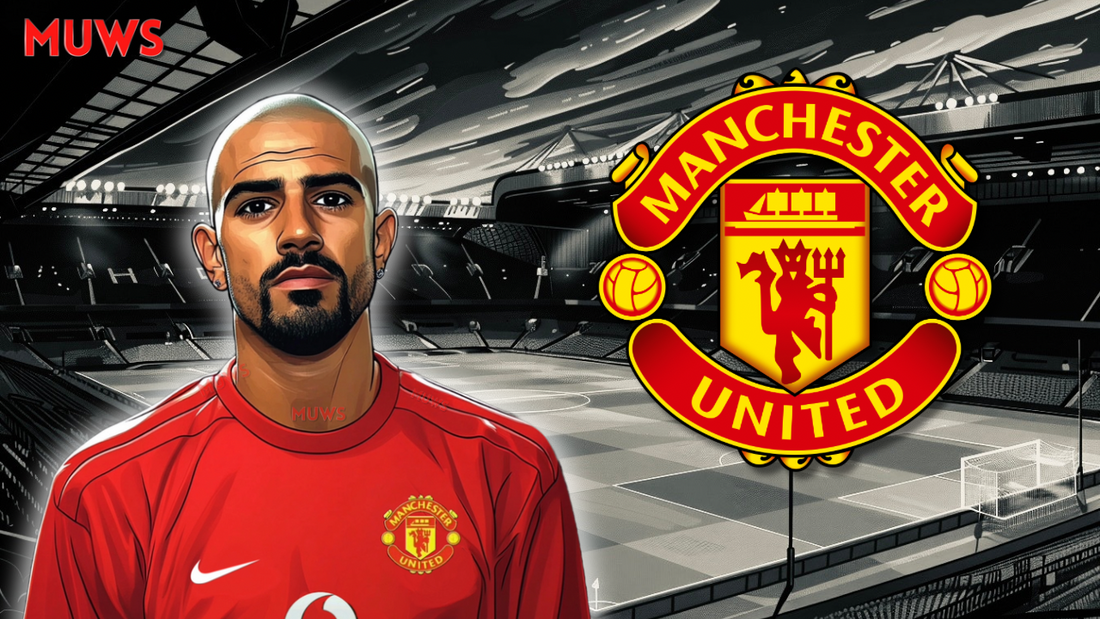
Verón’s Time at Manchester United: A Case of Style vs. System
Share
Juan Sebastián Verón’s arrival at Manchester United in the summer of 2001 was met with tremendous excitement. Signed for £28.1 million from Lazio (a British record transfer fee at the time) the Argentine midfielder came with a glowing reputation as one of the most elegant and technically gifted players in world football. His passing range, vision, and ability to dictate play were traits Sir Alex Ferguson admired, believing Verón would add a new dimension to an already formidable United midfield.
However, Verón’s time at Old Trafford is often remembered as a case of unfulfilled potential. The Premier League’s frenetic pace seemed to contrast with Verón’s more methodical style, which had flourished in Serie A and on the European stage. While he showcased flashes of brilliance, including some standout performances in the Champions League, he struggled to consistently influence games domestically. The midfield quartet of Roy Keane, Paul Scholes, Ryan Giggs, and David Beckham had been the cornerstone of United’s success, and Verón often found it difficult to carve out a defined role in such a competitive setup.
At Lazio, Juan Sebastián Verón thrived in a midfield three alongside Matías Almeyda and Pavel Nedvěd. Almeyda provided defensive solidity and tenacity as the holding midfielder, allowing Verón the freedom to dictate play and showcase his passing range. Nedvěd, on the other hand, brought energy, creativity, and a goal threat, often pushing forward to support the attack. This perfectly balanced midfield trio was a key component of Lazio’s success during that period, including their Serie A triumph in the 1999-2000 season.
Verón’s struggles at Manchester United were partly due to the presence of Roy Keane. At Lazio, Matías Almeyda excelled in a purely defensive role, allowing Verón to focus on dictating play. In contrast, Keane was much more than a ball-winner; his all-action ‘box to box’ style and influence in possession left Verón somewhat sidelined, with too many creative players competing for control. As a result, Verón was often pushed into a more advanced role with less room to operate or even shifted out wide to the right, limiting his involvement and effectiveness. Interestingly, years later, Michael Carrick occupied a position at United that might have allowed Verón to thrive, though Carrick played with a more defensive focus.
Ferguson remained publicly supportive, famously defending his signing with the expletive-laden declaration: “Verón is a f**king great player, and you’re all f**king idiots!” Yet behind the scenes, concerns grew over whether Verón’s style could truly adapt to the Premier League. Injuries further disrupted his rhythm, and with expectations sky-high, the pressure mounted. By the end of his second season, Verón had become an enigma: a player of undeniable talent who had failed to justify the investment on a consistent basis.
In 2003, Verón was sold to Chelsea for £15 million, marking an abrupt end to his United career. Reflecting on his time in Manchester, Verón later admitted his departure was one of his biggest regrets. “With United, the truth is that there are few things, very few, that I regret. But one is to have left Manchester. They never pushed me or told me ‘you have to go,’ but they gave me the chance, the possibility.”
These words reflect Verón’s lingering affection for the club and a sense of unfinished business. His struggles at United were not for lack of effort or ability, but rather a clash of styles and circumstances that made it difficult for him to thrive. Unlike Serie A, where the slower tempo allowed him to dictate games, the Premier League’s relentless intensity often left him exposed.
Verón was a player whose skill set was best suited to operating in a midfield three, where he could take advantage of the space and freedom to dictate the tempo of play. In a 4-4-2 system, which Sir Alex Ferguson predominantly used at Manchester United during Verón’s time, he often found himself restricted by the tactical demands of the formation. The 4-4-2 required its central midfielders to provide defensive solidity and relentless energy, attributes epitomized by Roy Keane and Paul Scholes. Verón, however, was a deep-lying playmaker who thrived when positioned slightly ahead of a defensive anchor, where he could orchestrate attacks without being burdened by defensive responsibilities. His best performances at Lazio and in the Champions League for United came in setups where the midfield balance allowed him to play to his strengths. Unfortunately, in Ferguson’s rigid 4-4-2, Verón often appeared ill-suited to the role, as he lacked the positional discipline and physical intensity required to excel in the system, which contributed to his struggles in adapting to the Premier League.
Veron made 82 appearances for Manchester United in two seasons, scoring 11 goals and providing 15 assists. He was part of the Premier League winning team in 02/03 and despite the disappointment, Verón’s time at United is a reminder of the challenges even the most gifted players can face when transitioning to a new league and culture. While his tenure is frequently labeled a failure, his quality was never in doubt, as evidenced by his performances elsewhere. For United fans, Verón remains a tantalising “what if” story, an extraordinary player who, for all his talent, never quite found his groove at Old Trafford.
